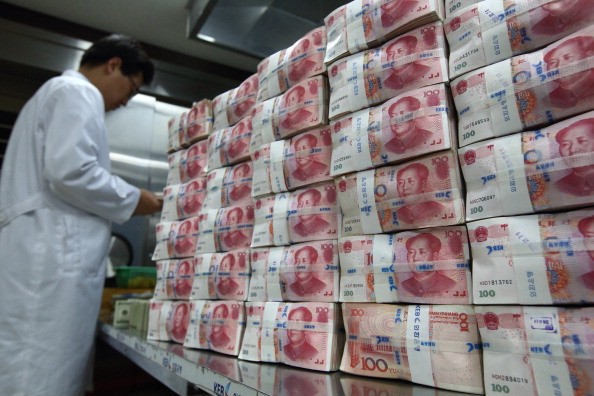China has kept the yuan from further decline and prevented capital outflows by selling U.S. government bonds at a record pace for six months.
CNBC said that China sold about $194.66 billion of U.S. Treasury bonds in six months and sold a total of 215.11 billion in the previous 12 months, both at record levels.
According to Benn Steil, senior fellow and director of international economics at the Council on Foreign Relations in New York, the People's Bank of China "is intervening in this particular case for a very specific reason, that they want to mitigate the downside pressure on the RMB [Chinese yuan] coming from capital flows."
"They are very concerned unless the RMB is stable there will be a self-perpetuating acceleration of outflows," Steil said.
Although there was no exact amount or details about the money leaving China, reports said that the movement was significant.
But despite a weakening yuan and other political issues, Chinese companies continue with acquisitions of U.S. and European firms. In the U.S., some Chinese individuals have reportedly made investments in real estate.
The yuan is currently suffering from an eight-year low while the U.S. dollar is on its 14-year high.
To support the yuan, China has been selling dollars and buying yuan. Unfortunately, its continued selling of Treasury bonds coincided with the decline of its foreign exchange reserves in December.
China's selling of Treasury bonds can be used as an indicator on capital outlfows, according to Michael Pettis, a professor at Peking University's Guanghua School of Management and author of "The Great Rebalancing."
"Because Chinese residents are buying an amount of foreign assets that exceeds the current account surplus, the PBoC must sell enough foreign assets that makes net purchase of foreign assets equal to the Chinese current account surplus," Pettis was quoted as saying.
The current account is the difference between a country's savings and investments. Since it exports more than it imports, China has a surplus.
According to the report, a weaker yuan may trigger further devaluation and more capital outflows, driving the government to tighter scrutiny of overseas cash transfers and restrict companies from foreign purchases which do not involve their core business.
If the government can maintain the yuan's depreciation and strengthen it in a short period, it could prevent speculative bet on the currency.
"Selling Treasurys will temporarily boost the yuan versus the U.S. dollar and that might please sentiment directly," Lucy Qiu, a strategist at UBS Wealth Management, said.
On the other hand, some analysts said that the capital outflow is not a grave issue as data would suggest.
"The biggest reason for the decline in reserves is China's corporations paying down U.S. debt," Nicholas Lardy of the Peterson Institute for International Economics, said, citing a report by Bank for International Settlements.
"When the pressure is big from inflows and when the pressure is big from outflows, we have a series of contingency plans," SAFE spokeswoman Wang Chunying said at a news briefing on Thursday, Jan. 18.



























